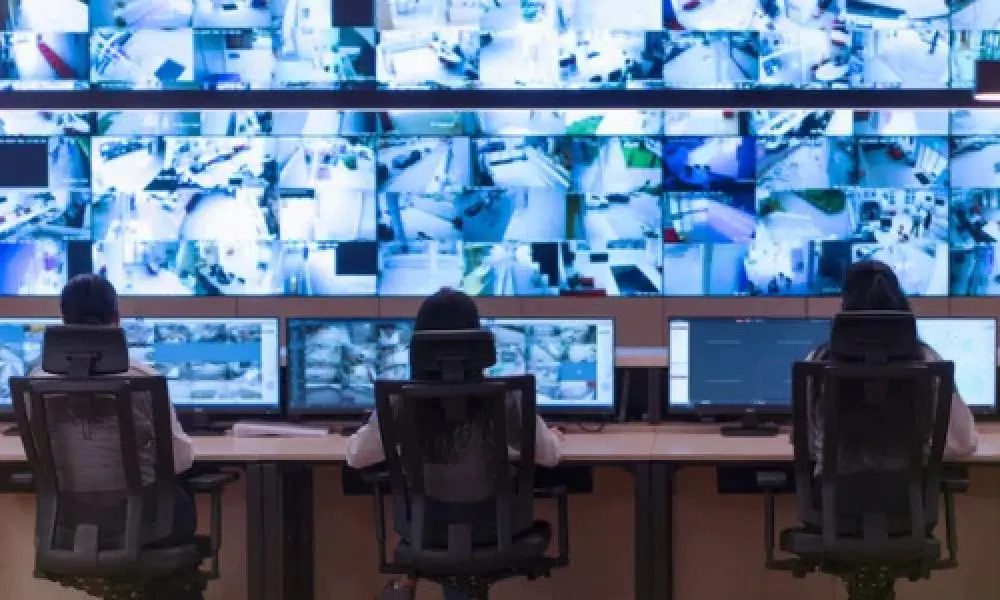Applications of Artificial Intelligence (AI) and other technological advances, such as Generative Pre-Trained Transformers (GPT) and Facial Recognition Technology (FRT), are becoming part of our everyday lives at an astonishing rate.
Henry Valentino, president and CEO of eConnect, acknowledges that “developments are coming at us so fast that it is tough to keep up with all of them”. You can be certain, however, that eConnect, with its award-winning identity management platform, will continue to arm casino properties with the protection that is necessary to ensure safety and security in spite of the advance of breakthroughs that could pose a threat.
Deepfakes are one such development. They are videos and images that have every appearance of being authentic, but are in fact created by using computer software that makes them only appear real. They are an attractive technology for fraud and deception artists.
“One very timely occurrence took place during the NFL playoffs when a deepfake of Taylor Swift wound up trending on X,” Valentino said. “What it did, however, was bring the public’s attention to the realism that deepfakes have the ability to create.
“As it pertains to casino properties, deepfakes may not be a concern at all because of the good policies and procedures in place for how credit is provided, specifically. But for components that may not have as large a value, for instance free play, a vulnerability could be created such as a submission from a ChatGPT with deepfake images and addresses.”
GPT models are in fact designed to create what appears for all intents and purposes to be human-supplied text in response to a specific prompt or image.
Recently, OpenAI, the maker of ChatGPT, released a technology called Sora, an AI model that uses generative artificial intelligence to create videos based on written commands, which Valentino reports “are so realistic that everybody is kind of taken aback by it”.
“Again, we ask ourselves in the casino industry where this is likely to create a vulnerability, if at all,” he added. “It will be one of those things to watch and see how it plays out.”
One technological application that eConnect has mastered is Facial Recognition. The company’s facial matching technology compares over 70 nodal points of the face to the image on the person’s ID, in addition to performing auto-checks of over 50 points of fraud on the ID itself within seconds.
The National Institute of Standards and Technology (NIST), a non-regulatory agency under the umbrella of the United States Department of Commerce, conducts the Face Recognition Vendor Test (FRVT), which is the most respected benchmark in the evaluation of facial recognition algorithms for verification and identification.
NIST has determined eConnect’s facial recognition algorithm to be top-rated, with deep integrations and the ability to extract casino data, integrate with casino surveillance systems, and incorporate the facial recognition algorithm to mesh with the identification and scanning systems.
“Facial recognition is an amazing application,” Valentino said. “At eConnect, we continue to marvel at the speed and accuracy of the AI’s ability to match faces and to match against things like employee badges, or what used to be orientation photos, or to match against people who are getting their picture taken when they join the loyalty programs. All of those things are continuing to be improving at such a rate, it is pretty impressive.”
Valentino reminded that eConnect is the only supplier offering applications exclusively to casinos, in addition to being an American company with all of its code and technology created in the United States, making eConnect the one-stop answer for efficiency, functionality and superior service in security protocol for the casino industry.
“An ID provides details about casino guests, including their face,” Valentino said. “However, what we are seeing is a lot of casinos do not have a database of faces. CMS may have a database of contacts and a component to store an ID, but they lack an application to store faces. eConnect has the solution.”
Valentino believes that with the availability of so many applications, eConnect’s identity management platform is a logical necessity for properties.
“The concept is three-fold,” he said. “First, keeping the ‘bad guys’ out. Next is self-exclusion. The only way to consistently prevent an individual who has self-excluded from walking into a casino to gamble is through facial recognition. Third is access control. Facial recognition is superior to other technologies, such as RFID cards, finger prints and hand scanners.”
Identity fraud is a revenue-draining and regulatory nightmare that the casino industry faces on a daily basis, but it does not have to be that way.
Valentino says that properties are scanning IDs at the cage, at the hotel, and at player’s clubs, but “it really needs to be done only once if you have a system that communicates across all those different domains,” he said.
“Credentialing is new nomenclature that has appeared on the scene,” he continued. “Casinos have so many people coming and going that we cannot really fathom the idea that everybody can have a credential and be authenticated.
“The reality, however, is heading in that direction. I have seen it in sporting events in particular where you will be moving free and following a team. They will go on the road and obviously it will be all the members of the team and the coaching staff.
“There is also a whole group of press, friends and family who travel with the team and end up getting credentialed. The credentials now are essentially being authenticated at the beginning of the season, and then any of the facilities where those people appear it verifies the badge is legitimate and has been matched against the original application, which might have been your driver’s license, passport, or whatever your ID was when you originated the credential. This is definitely happening in our industry as well, especially as it pertains to VIP access.”





